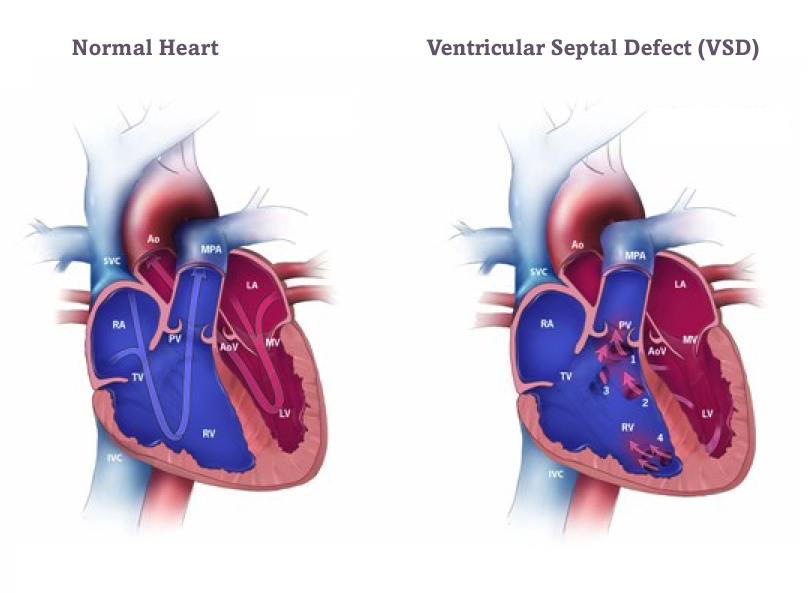 Discovering congenital abnormalities later in life, which may have initially gone unnoticed, can understandably raise concerns. One such anomaly is a ventricular septal defect (VSD), a condition characterized by a hole between the upper chambers of the heart known as the atria. Another associated abnormality is Tetralogy of Fallot (TOF), which may also be identified in adulthood.
The good news is that advancements in medical care enable the successful repair of these congenital heart issues, even when detected later in life. Take, for example, the minimally invasive approach known as Endoscopic Septal Defect (ESD). This procedure involves making a small incision on the left side of the chest, allowing for a less intrusive and faster recovery process.
While it might be unexpected to uncover such conditions later on, it’s essential to recognize that these surgeries are routinely and safely performed. The focus is not just on addressing the congenital abnormalities but also on ensuring your well-being throughout the entire process. Your healthcare team is dedicated to guiding you through the diagnosis, treatment, and recovery stages, ensuring that you feel supported and informed every step of the way.
It’s important to appreciate the resilience of the human body and the expertise of medical professionals in successfully managing and treating congenital heart conditions, even when they come to light later in life. Your journey towards better heart health is a collaborative effort between you and your healthcare providers, working towards a future where you can lead a healthy and fulfilling life.
Discovering congenital abnormalities later in life, which may have initially gone unnoticed, can understandably raise concerns. One such anomaly is a ventricular septal defect (VSD), a condition characterized by a hole between the upper chambers of the heart known as the atria. Another associated abnormality is Tetralogy of Fallot (TOF), which may also be identified in adulthood.
The good news is that advancements in medical care enable the successful repair of these congenital heart issues, even when detected later in life. Take, for example, the minimally invasive approach known as Endoscopic Septal Defect (ESD). This procedure involves making a small incision on the left side of the chest, allowing for a less intrusive and faster recovery process.
While it might be unexpected to uncover such conditions later on, it’s essential to recognize that these surgeries are routinely and safely performed. The focus is not just on addressing the congenital abnormalities but also on ensuring your well-being throughout the entire process. Your healthcare team is dedicated to guiding you through the diagnosis, treatment, and recovery stages, ensuring that you feel supported and informed every step of the way.
It’s important to appreciate the resilience of the human body and the expertise of medical professionals in successfully managing and treating congenital heart conditions, even when they come to light later in life. Your journey towards better heart health is a collaborative effort between you and your healthcare providers, working towards a future where you can lead a healthy and fulfilling life.